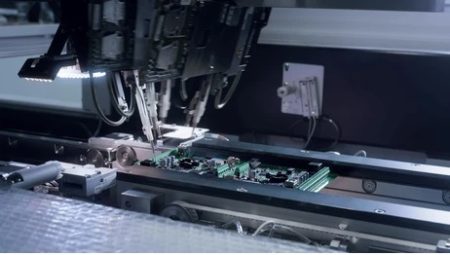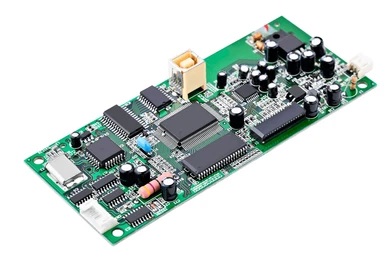- +86-755-23012705
- Building 3, Jinfeng Industrial Park, Fuyong Street, Baoan District, Shenzhen ,China
- [email protected]
Printed Circuit Board Assembly (PCBA) is a fundamental technology that drives the performance and functionality of modern consumer electronics. From smartphones and laptops to wearables and home appliances, almost every electronic device depends on a well-designed and efficiently assembled PCBA. However, as consumer electronics become increasingly complex, the challenges faced in PCBA design and manufacturing also grow. In this blog, we will explore some of the key challenges associated with PCBA in consumer electronics and how the industry is adapting to meet these demands.
One of the most significant trends in consumer electronics is miniaturization. Devices are getting smaller, lighter, and more powerful, and this puts immense pressure on the design and manufacturing of PCBAs. Smaller devices require PCBAs that can fit more components into smaller spaces without compromising performance.
The challenge here is that as the size of components decreases, the density of the circuits increases, making it more difficult to manage heat dissipation, signal integrity, and power distribution. High-density interconnects (HDI) are often used to increase the number of connections on a small board, but this demands advanced manufacturing techniques and more precise design.
Furthermore, miniaturization often involves the use of smaller components, such as microchips and tiny passive components, which are more delicate and require careful handling during the assembly process. These components are more sensitive to factors such as heat and pressure, making the soldering and placement processes even more critical.

With the rise of 5G technology, artificial intelligence (AI), and the growing demand for high-performance devices, PCBA design has to support increasingly high-speed data transmission. Consumer electronics like smartphones, laptops, and gaming consoles require PCBAs capable of handling high-frequency signals and fast data rates.
The challenge lies in ensuring signal integrity while minimizing noise and interference. High-speed signals can degrade due to various factors such as trace lengths, PCB material choices, and the positioning of components. To mitigate these issues, designers use techniques like controlled impedance, differential pair routing, and advanced materials with low signal loss.
Additionally, the more complex the design, the greater the risk of manufacturing defects. Even minor imperfections in the PCB layout, such as poorly routed traces or incorrect grounding, can lead to significant performance issues, such as signal loss or electromagnetic interference (EMI).
As consumer electronics become more powerful, they also generate more heat. The challenge of thermal management is particularly evident in devices like smartphones, gaming consoles, and laptops, where components such as processors and GPUs generate substantial heat.
Excessive heat can cause components to malfunction, reduce their lifespan, or even cause complete failure. Therefore, proper thermal management in PCBAs is crucial. This typically involves using heat sinks, thermal vias, and copper layers to dissipate heat away from sensitive components. However, as devices become thinner and smaller, managing heat within the confined space of modern electronics becomes increasingly difficult.
The use of advanced materials, such as thermal interface materials (TIMs) and heat-spreading copper, is common in high-performance devices. But the challenge remains in designing PCBs that effectively manage heat without increasing the size or weight of the device.
Consumer electronics are expected to function reliably over extended periods, even in demanding environments. A poorly designed or improperly assembled PCBA can lead to frequent malfunctions, reduced product lifespan, and customer dissatisfaction. Ensuring the reliability and durability of PCBAs is particularly important in sectors like automotive electronics, medical devices, and industrial equipment, where failure can have serious consequences.
Several factors contribute to the reliability of PCBAs, including component quality, soldering techniques, material selection, and environmental considerations. For instance, exposure to moisture, humidity, or extreme temperatures can cause PCBAs to degrade, leading to issues such as corrosion, solder joint cracking, or component failure.
Manufacturers must ensure that PCBAs meet strict reliability standards, such as vibration resistance, shock resistance, and resistance to extreme temperatures. In many cases, PCBAs undergo accelerated life testing (ALT) to simulate long-term use and environmental stress to ensure they meet these rigorous standards.
While consumers demand high-performance and feature-rich devices, they also expect them to be affordable. This creates a challenge for PCBA manufacturers who must balance the cost of materials, components, and assembly with the need for high-quality, high-performance electronics.
The cost of raw materials, such as copper, gold, and other metals used in PCBAs, can fluctuate, impacting the overall cost of production. Additionally, advanced PCB designs and the need for high-precision assembly increase manufacturing costs. As a result, manufacturers need to find ways to optimize the design and production process to reduce costs without compromising on quality.
One common strategy is to use surface-mount technology (SMT), which allows for faster assembly and more compact designs compared to traditional through-hole technology. SMT also reduces the need for manual assembly, further cutting costs.

As the world becomes more environmentally conscious, the demand for sustainable, eco-friendly electronics is growing. This includes PCBAs, which traditionally use materials and processes that are not environmentally friendly. For example, the use of lead-based solder, hazardous chemicals in the PCB manufacturing process, and the disposal of electronic waste (e-waste) are major environmental concerns.
To address these issues, the electronics industry is shifting toward greener alternatives. Lead-free soldering materials, such as tin-silver-copper (SAC) alloys, are becoming the standard in many PCBA manufacturing processes. Additionally, there is growing interest in using recyclable materials for PCBs and reducing the environmental impact of the manufacturing process.
Manufacturers are also under increasing pressure to meet environmental standards, such as the European Union’s RoHS (Restriction of Hazardous Substances) directive, which limits the use of hazardous materials in electronic products. As sustainability becomes a more prominent issue, the industry must find innovative ways to minimize the environmental impact of PCBAs.
The global electronics industry has recently faced significant challenges related to supply chain disruptions and component shortages. The COVID-19 pandemic and geopolitical tensions have affected the availability of essential raw materials and components used in PCBAs. These shortages have led to delays in production, increased lead times, and rising costs for manufacturers.
For consumer electronics manufacturers, supply chain reliability is critical to maintaining production schedules and meeting consumer demand. The ongoing global semiconductor shortage, in particular, has highlighted the vulnerabilities in the supply chain for key components used in PCBAs.
To address these challenges, many manufacturers are diversifying their supplier base, increasing inventory levels, and exploring alternatives to traditional components. Some are also adopting more agile manufacturing practices to respond quickly to changes in supply chain dynamics.

The challenges associated with PCBA in consumer electronics are numerous and complex. As devices continue to evolve, PCBA design and manufacturing must keep pace with demands for miniaturization, high-speed performance, thermal management, reliability, and cost-effectiveness. At the same time, environmental concerns and supply chain issues add additional layers of complexity to the process.
Despite these challenges, innovation in materials, design techniques, and manufacturing processes continues to drive the development of more efficient and reliable PCBAs. As technology progresses, the industry will need to adapt to new requirements and ensure that the electronic devices we rely on every day remain high-quality, affordable, and sustainable.
Your Trusted Partner for PCB Success: XPCB Limited
Let XPCB Limited be your guide to PCB success. Our comprehensive PCB manufacturing, rapid prototyping, and turnkey PCBA services are designed to meet your needs with ease. Count on us to deliver reliable solutions that exceed your expectations. With XPCB Limited, your journey to PCB excellence starts here.






XPCB Limited is a premium PCB & PCBA manufacturer based in China.
We specialize in multilayer flexible circuits, rigid-flex PCB, HDI PCB, and Rogers PCB.
Quick-turn PCB prototyping is our specialty. Demanding project is our advantage.
Tel : +86-136-3163-3671
Fax : +86-755-2301 2705
Email : [email protected]
© 2024 - XPCB Limited All Right Reserve
